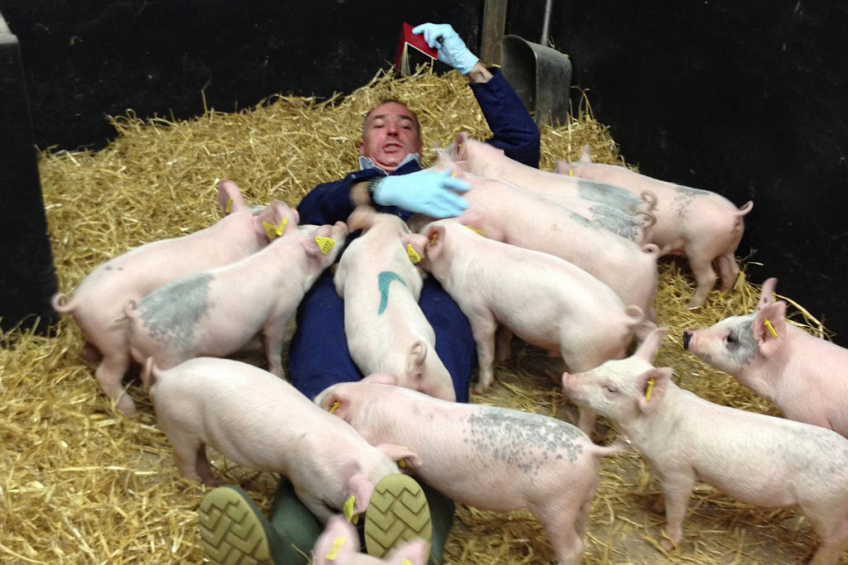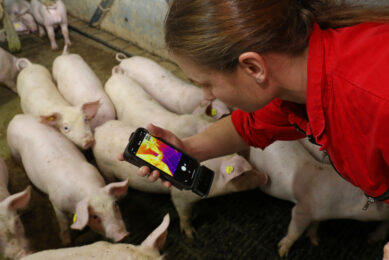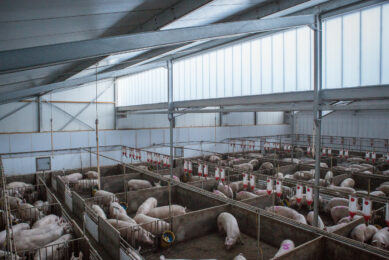Scientists take piglet perspective to create toys

By thinking from the perspective of piglets, a group of Scottish researchers recently aimed to figure out how to create better animal welfare solutions.
The scientists participated in a creative workshop focusing on the importance of playtime, held at the Pig Unit of Scotland’s Rural College (SRUC). The piglet gentling and play-object making workshop was run by Leverhulme Trust Artist-in-Residence Andrea Roe, can be read in a press release shared by the college.
The aim of the workshop – the first in a series – was to bring together scientists, researchers and students to allow animal welfare questions to be creatively explored.
Importance of play
Focusing on the importance of play, it was designed to encourage participants to think from the perspective of another species – and to create toys which would keep the piglets from getting into mischief.
The workshop began with a demonstration of the gentling process. After piglets are weaned at 4 weeks of age, volunteers spend a few hours over a couple of days socialising the pigs to human contact to reduce stress and habituate the pigs to any test environments that might be used in behaviour and welfare trials.
Settling in a pen, waiting for observation
All workshop participants were designated a litter of 4-week old piglets and settled themselves in a pen to wait for the piglets to approach and subsequent exploration. During the gentling session the participants were asked to observe how the piglets investigated them, each other and their surroundings. They were also asked to imagine a form and type of object that would retain the interest and offer stimulation to a young pig – in other words a toy attractive to piglets.
Course participants were then taken to the workshop area where they were encouraged to use their observations to influence the making of play objects. The toys – made from mainly natural materials such as pine cones, turnips, sticks and hay – are designed primarily for exploration by mouth and snout.
Also read:
EU: Toys should entertain pigs longer
Responses were observed and recorded
The play objects were then placed into pens of grower pigs to test if the participants’ interpretive understanding of what would interest a pig was accurate. The responses of the grower pigs were observed and recorded.
Marianne Farish, research technician at the college’s pig unit, was quoted to say, “I felt that those attending the workshop really engaged with the pigs and got to see what life is like from a pig’s perspective.”
“They took to the toy making with creativity and inspiration. The end products were an absolute hit with the pigs and they played with them for many hours.”
The press release also quotes Dr Adrian Philbey, senior lecturer in Veterinary Pathology at the Royal (Dick) School of Veterinary Studies at University of Edinburgh who was one participant who benefited from the workshop. He said, “I really enjoyed the afternoon and felt that it was a great experience to look at pigs from such a novel perspective.”
Ongoing research studying the benefits of play
Dr Emma Baxter, animal behaviour researcher at SRUC, was quoted as saying, “We are carrying out ongoing research studying the benefits of play in early life for the long term welfare of pigs.”
She added, “Pigs are particularly gregarious creatures. They are very intelligent and get bored easily and this can lead to misdirected behaviour like tail biting. Play is therefore very important for the pig’s social development.”











